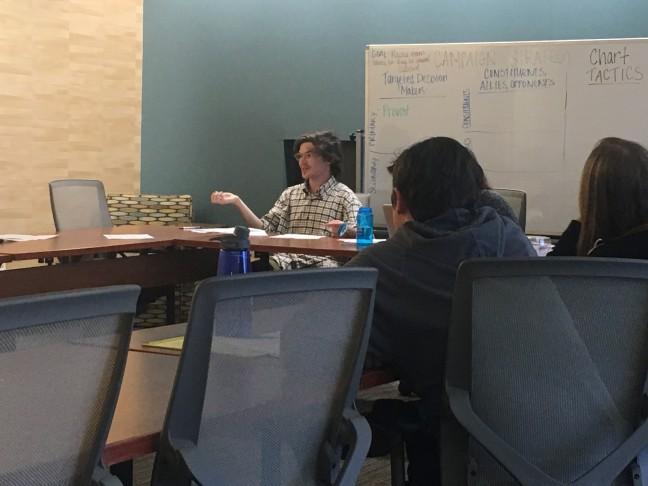University Affairs Committee wrapped up its last meeting ever by brainstorming ideas to solve student voter conflicts and the decrease cost of going to class.
Following last week’s Associated Students of Madison vote to remove UAC, the committee met for the last time before officially dissolving into the Shared Governance Committee.
One of the last issues the committee discussed was the conflict students face during elections. Students often have to skip class or are unable to vote because they have class during an election, UAC Chair Sally Rohrer said.
Because students currently have to choose between missing important class time and exercising their constitutional right, University of Wisconsin student Tom Gunderson said the university should give students the day off to vote. Gunderson said he believes faculty would be willing to change their syllabuses to give more students time to vote.
“If the Faculty Senate votes in approval of changing their syllabuses [to take election day off,] it would just be pressing the administration [to take election day off],” he said. “I think [it would be] kind of easy at that point [since] we would have big student support, and faculty support.”
Rohrer said the person the committee would have to seek approval from would be Provost Sarah Mangelsdorf. She said the provost is the main decision-maker on what each school year’s calendar looks like.
Before concluding the meeting, the committee briefly discussed some of the research that committee members have conducted on the course affordability resolution.
UAC Rep. Rachel Widra said UW could be in violation of a federal law. A 2008 law called the higher education opportunity act requires all universities receiving federal funding to list the textbooks and course materials for each course and how much they cost.
The university does not currently have all of the textbooks and course materials listed on course lists, she said.
UW faculty members argue some of the textbooks and course materials should not be displayed because faculty like to encourage students to get their textbooks from stores that are more affordable than the bookstore, which automatically orders listed books, Widra said.
Rohrer said the course affordability campaign would continue to work with faculty and administration to determine how to use current resources that are less expensive.
“In terms of where we are going [for course affordability] … it’s going to be about how we can make the transition to Canvas and how we can transition to using other free resources,” Rohrer said.


